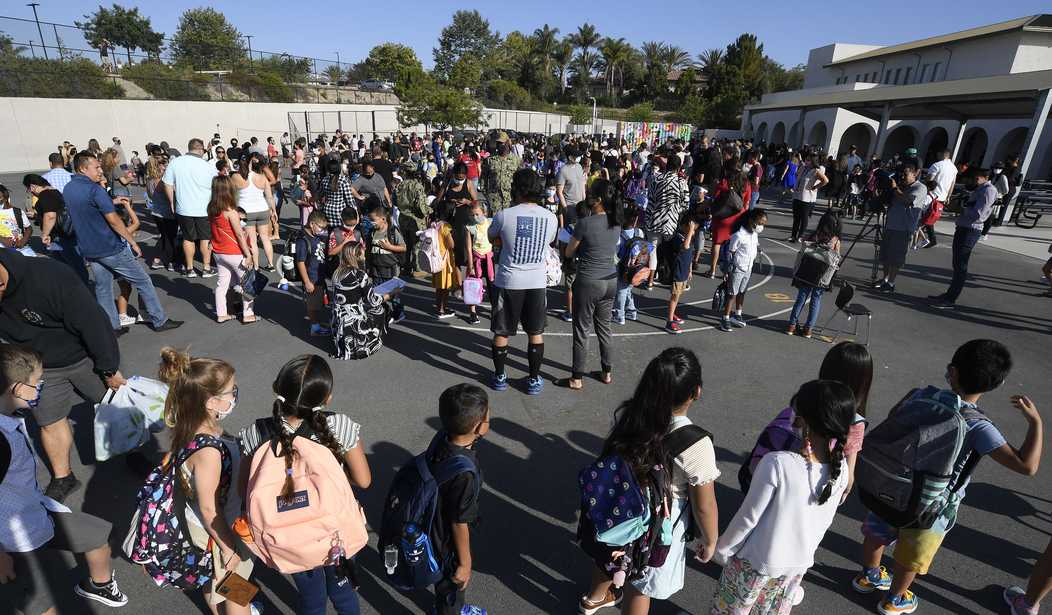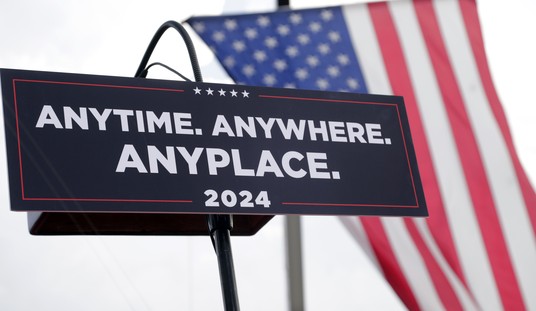There’s a new poll out today from the University of Chicago Harris School of Public Policy and AP-NORC which looks at American’s views of education. Specifically, the poll asked how people feel about school boards and how they feel about what is being taught in their schools. Not surprisingly what it found was some disagreement.
Americans are deeply divided over how much children in K-12 schools should be taught about racism and sexuality, according to a new poll released as Republicans across the country aim to make parental involvement in education a central campaign theme this election year.
Overall, Americans lean slightly toward expanding — not cutting back — discussions of racism and sexuality, but roughly 4 in 10 say the current approach is about right, including similar percentages across party lines…
About 4 in 10 Republicans say teachers in local public schools discuss issues related to sexuality too much, while only about 1 in 10 say too little. Among Democrats, those numbers are reversed.
Over at the Washington Post, Paul Waldman has a piece about the poll titled “The silent majority against Republicans’ moral panic on schools.” Here’s how he framed the results:
A new poll from the University of Chicago Harris School of Public Policy and the Associated Press-NORC Center for Public Affairs Research suggests a genuine silent majority of people who think what’s happening in schools is just fine — and many of them believe there should be more discussion of race and sexuality…
- By 58 percent to 12 percent, Americans oppose “prohibiting books about divisive topics from being taught in schools.” (The rest are undecided.)
- By 53 percent to 21 percent, they oppose “prohibiting teachers from teaching about sex and sexuality in schools.”
- 71 percent say their local school system is either focusing too little on racism or focusing the right amount, while just 27 percent say it is focusing on it too much.
- 71 percent also say teachers in their local schools are either discussing issues related to sex and sexuality the right amount or not enough. Only 23 percent say teachers are discussing sex and sexuality too much.
Those numbers are accurate but they’re also somewhat misleading. Yes, a majority of Americans are against banning books and prohibiting sex ed in schools. But that’s as far as the questions went. There weren’t any questions about specific material or specific ages. So while I think it’s fair to say a majority hold these views in general, I don’t think you can assume from that fact that a silent majority would be okay with, for instance, teaching gender identity to first graders. Had that question been asked, I think you’d find that a majority would not support it.
Indeed there’s some evidence that’s the case. Polling of the Florida law which the media dubbed the “Don’t Say Gay” law found that majorities supported the elements of the law which limited instruction on gender identity to young children (51-35) and which mandated that later instruction be age appropriate (52-33). It’s worth noting that there was a heavy partisan divide on both questions with about half of Democrats being against both provisions. So I guess you could say that a not-so-silent majority of Democrats support these views but not a majority of people in general.
As for the focus on racism, the way Waldman presents this is, once again, a bit misleading. Here’s how AP-NORC framed the results:
When it comes to discussion of racism in the United States, 37% feel their public schools are focusing on it the right amount. Again, the rest of the public is split with 27% who feel their local schools are focusing on racism too much and 34% who feel there is not enough focus.
So the largest group is those who think the current focus is the right amount. Then there’s a split (34-27) between those who think students need more focus on race and those who think they need less. That’s basically an argument for the status quo.
More to the point, if parents had been asked if they supported teaching specific things, such as the 1619 Project or Robin DiAngelo’s views, the results might have been very different. This is a distinction that the media has been eager to ignore. There is a difference between supporting the teaching of slavery, the Civil War, Jim Crow, etc. and teaching some of the more recent, CRT-inspired approaches to these topics.
The poll did include questions about a couple of hot button issues including renaming schools named after historical figures who owned slaves. The poll found 33% of respondents supported the idea while 39% opposed it with 27% undecided. Allowing transgender students to use their preferred bathroom? In that case 30% supported it and 41% opposed it. Of course these numbers may change over time but as of right now, the further out you go, the less support these ideas have.
The poll did find that about half of respondents believe parents and teachers should have more control of what’s taught in schools and nearly the same number said the state and federal government should have less control. As for local school boards, who’ve been the object of ire from parents, 49% of respondents said they had some confidence in boards and 16% were very confident in them. But 32% had very little confidence in them. That’s more of a divide between the two opposing viewpoints than the poll found on the teaching of race or sex.







Join the conversation as a VIP Member